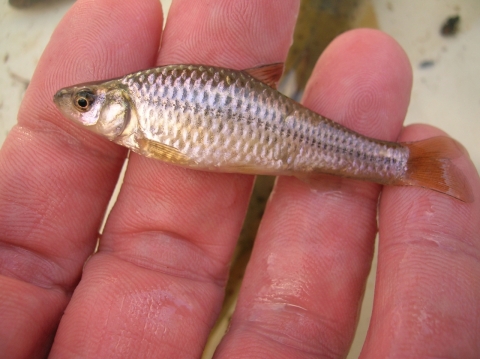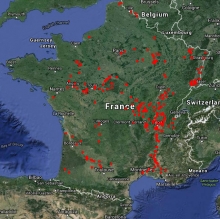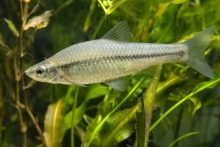
Evidence of threat to European economy and biodiversity following the introduction of an alien pathogen on the fungal–animal boundary
Ercan D., Andreou D., Sana S., Öntaş C., Baba E., Top E., Karakuş U., Tarkan A.S., Gozlan Rodolphe. Emerging Microbes & Infections - Nature , 2015, 4, e52; doi:10.1038/emi.2015.52
A fish parasite called Sphaerothecum destruens could decimate European fish populations and seriously harm commercial fish farms. The parasite is carried by the topmouth gudgeon, Pseudorasbora parva, an invasive freshwater fish that has become established in rivers across Europe and elsewhere. Rodolphe Gozlan at the Institut de Recherche pour le Développement in Paris and co-workers in Turkey and the UK sampled six species of freshwater and marine fish from Turkish streams and rivers at the southeast edge of P. parva’s invasive range. All were highly infected with S. destruens. In the three years since the introduction of P. parva to this area, catch numbers have dropped 80 to 90 per cent. One of the infected species is the commercially farmed European sea bass, Dicentrarchus labrax, which is worth an annual €700M to the Mediterranean region.
Contact: R. Gozlan



